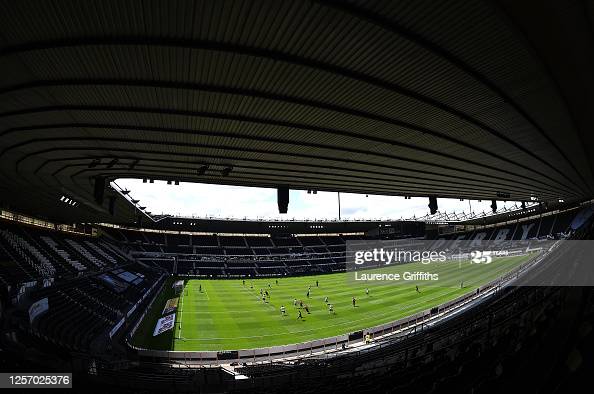Derby County have been cleared of two EFL charges after an independent disciplinary commission dismissed allegations relating to the valuation of Pride Park in June 2018 and their amortisation policy.
In the financial year ending June 30 2018, the Rams recorded a pre-tax profit of £14.6million, though the EFL found the £80m sale of the stadium to owner Mel Morris to have skewed the figures significantly, with the valuation of the ground having been almost doubled from the price it was previously listed as being worth (£41m).
The club also made heavy losses in the two seasons prior (£9m and £15m), and so were charged by the EFL in January with breaching the three-year £39m permitted loss that is outlined in their profit and sustainability regulations.
The accusations relating to their amortisation policy - a common accounting method whereby a player's transfer fee is spread over the life of his contract - centred on the specific value of the intangible assets (players) they were amortising, that being their residual value (the expected value of a player at the end of his contract).
Such an approach inevitably trims the annual cost incurred, though the disciplinary commission saw nothing wrong with either this or the sale of the stadium. They did, however, believe "the wording of the amortisation policy could have been clearer," as revealed by Derby in their press release.
The announcement means Derby will avoid both a points deduction and a fine as they ramp up their preparations for the forthcoming season. The statement also read:
"Derby County is delighted at the outcome and will, at this stage, not make any further comment relating to the matter and the full focus of everyone at the club is now on preparations for the upcoming 2020/21 season."
The full written reasons will be released by the tribunal in due course, but the Rams do seem to have got off lightly here, particularly at a time when Sheffield Wednesday have just been deducted 12 points for what, at first glance, appears to be a similar breach.
It is important to emphasise, though, that selling a fixed asset to an owner is in no way an illegal transaction under EFL rules, and Derby and Wednesday aren't alone in exploiting the loophole, with owners at the likes of Reading and Aston Villa having been scrutinised for similar acquisitions. Wednesday were sanctioned specifically for backdating the sale to their 2018 accounts, turning a heavy loss for that year into a small profit.
However, as is evident in the Derby case, the EFL now appear keen to investigate sums for stadia that haven't been sold at a fair market price. For context, West Ham United sold their stadium in East London for just £40million two years earlier, where the average house price is approximately double that of the area that surrounds the retail park where Pride Park is situated.
As for their amortisation method, the final verdict was always going to centre on whether Derby's intangible assets satisfied the stipulations set out in the Financial Reporting Standard FRS 102. For residual values to be used in calculations, it states that the asset must either have a third party committed to buying it at the end of its useful life, or there must be an active market for the asset to gauge an accurate value.
In the context of football, Derby's approach could potentially be seen as inconsistent with these rules, given that a player has zero value at the end of his contract and no individual footballer gets transferred on a frequent or regular basis.
The commission clearly felt otherwise, and their reasons for the decision will be eagerly anticipated by those looking to get to the bottom of the saga.










































